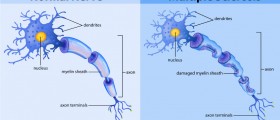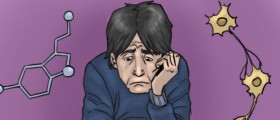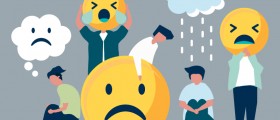
Etiology of Depression
Depression is believed to occur due to different causes. Given below are explained physiological, psychological and environmental causes of depression.
The Physiological Causes
One of the physiological factors that lead to depression is biochemical imbalance. This includes hormonal imbalances and changes in neurotransmitters, naturally occurring chemical messengers in the brain.
Depression can be also caused by another medical condition such as Alzheimer’s disease, Parkinson’s disease, menopause, cancer, diabetes, heart disease and hypothyroidism.
Depression can be triggered by genetic factors as well. Often, individuals suffering from depression have family history of the illness. Gender also plays a role in etiology of depression and it has been observed that women are more likely to suffer from depression than men.
Depression can be an outcome of substance abuse or nutrient deficiency (lack of folic acid and vitamin B12). Medications like sleeping pills, oral contraceptive pills and medications for blood pressure control can also trigger depression.
The Psychological Causes
People with certain personality traits are prone to depression. These traits mainly include pessimism, low self-esteem, anxiety, hypersensitivity, complex of superiority or inferiority. Irrational thought process that includes excessive self-blame, lack of self-confidence, low self-regard can trigger depression. Some people believe they are unable to control or make changes in their life. This feeling of helplessness can lead to pessimism, apathy and eventually depression.
Obese people, especially obese teenagers are highly susceptible to depression. Obese people tend to be isolated and depressed due to dissatisfaction with their physical appearance. Extremely thin and skinny individuals are also prone to depression due to the same reason.
The Environmental Causes
Stress is an important factor in etiology of many diseases. High stress events like loss of job, death of a loved one or financial problems can trigger depression as well.
Children who experience death of a parent or their parents divorce easily become depressed due to feeling of loss and extreme sadness. Empty nest syndrome is also often a cause of depression, particularly in middle aged women. Empty nest syndrome is the condition featured by sadness, loss of purpose and depression that parents experience when their children leave home for college.

















Your thoughts on this
Loading...